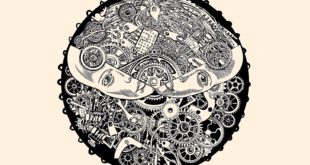from Dean Baker The news media have been constantly hyping inflation in recent months. While everyone has been seeing the huge rise in gas prices over the last year (that’s what happens when the world reopens after a pandemic), used car prices have risen almost as rapidly. From December 2020 to December 2021 they rose 37.3 percent. This accounted for 1.03 percentage points of the 7.0 percent overall inflation in the last year. We know the story of these price increases. A fire in a...
Read More »Models and the need to validate assumptions
from Lars Syll Piketty argues that the higher income share of wealth-owners is due to an increase in the capital-output ratio resulting from a high rate of capital accumulation. The evidence suggests just the contrary. The capital-output ratio, as conventionally measured has either fallen or been constant in recent decades. The apparent increase in the capital-output ratio identified by Piketty is a valuation effect reflecting a disproportionate increase in the market value of certain...
Read More »Weekend read – Combatting global warming: The solution to China’s demographic “crisis”
from Dean Baker and WEA Commentaries There have been numerous news articles in recent years telling us that China faces a demographic crisis. The basic story is that the market reforms put in place in the late 1970s, together with the country’s one-child policy, led to many fewer children being born in the last four decades. As a result, the number of current workers entering retirement exceeds the size of the cohorts entering the workforce, leading to a stagnant or declining workforce....
Read More »Meat Loaf
from Lars Syll [embedded content]
Read More »Wealth tax
from David Richardson and RWER #98 To the extent they are taxed at all, capital gains are only taxed on realisation. In that way avoidance avenues can take place by simply not realising capital gains. The arguments against taxing gains as they accrue are pragmatic. It would be difficult to measure the value of assets each year to calculate tax liabilities. If capital gains are difficult to tax because they are difficult to value, then perhaps wealth should be taxed instead. Wealth could...
Read More »Global labour landscape: public health and employment crisis
from Maria Alejandra Madi According to ILO, the COVID-19 epidemic was changed from a public health disaster to an employment and social crisis. The pandemic has had a devastating impact on worldwide public health, employment, and daily life. In this scenario, a lack of comprehensive policy initiatives exacerbates inequality and limits overall workplace growth. Among the most significant labor-market outcomes, we can recall: 1. Because many firms, particularly micro and small businesses,...
Read More »What can students possibly learn through impossible examples?
from Emmanuelle Bénicourt, Sophie Jallais and Camille Noûs and RWER #98 The case of distribution of revenue Marginal product is a key concept of neo-classical economics, for, in the perfect competition model, it determines inputs’ demands (the quantities chosen by a competitive profit-maximizing firm are such that the value of the input’s marginal product equals the input’s real price). It is then a core concept of neoclassical distribution theory, the so-called ‘marginal productivity...
Read More »Deliberately designed to make the rich richer
In tax we trust. To our fellow millionaires and billionaires, If you’re participating in the World Economic Forum’s ‘online Davos’ this January , you’re going to be joining an exclusive group of people looking for an answer to the question behind this year’s theme, ‘how do we work together and restore trust?’ You’re not going to find the answer in a private forum, surrounded by other millionaires and billionaires and the world’s most powerful people. If you’re paying attention, you’ll...
Read More »On Diane Coyle’s Cogs and Monsters
from Lars Syll and WEA Commentaries Macroeconomists seem to me the biggest offenders n not taking such empirical issues (of practical data handling) seriously enough. This might sound like sheer contrarianism given that macroeconomists are constantly wielding data; after all, their business is analysing the behaviour of the whole economy and forecasting its future path. My concerns are, first, that too few think about the vast uncertainty associated with the statistics they download and...
Read More »Cambridge economics has died out
from Lars Syll A couple of weeks ago yours truly had a review of Diane Coyle’s Cogs and Monsters in WEA Commentaires. As I wrote, there’s a lot in the book to like, but unfortunately also some things very hard to swallow. James Galbraith seems to argue along the same lines in his Project Syndicate review: Coyle subscribes to the grand illusion that price adjustment is the economy’s prime mover. But as the Cambridge Keynesian economist Nicholas Kaldor noted in his slim 1985 book, Economics...
Read More » Real-World Economics Review
Real-World Economics Review

